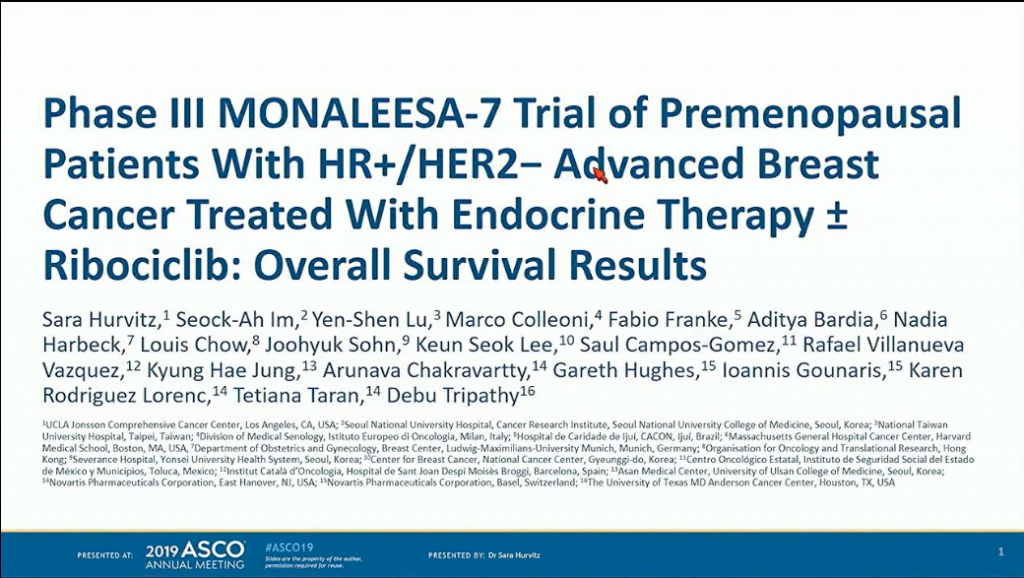Dr. Laura Esserman of the University of California, San Francisco told Reuters Health by email that the findings build on previous work showing that giving chemotherapy (neoadjuvant) prior to surgery "provides critical information about prognosis/outcome."
"We showed that, for women with stage 2 and 3 molecularly high-risk breast cancers, complete absence of tumor after chemotherapy (at the time of surgery) is associated with an excellent outcome, regardless of how bad your tumor was at the start, regardless of treatment, and regardless of subtype," she said.
Coauthor Dr. W. Fraser Symmans of the University of Texas MD Anderson Cancer Center in Houston commented in a separate email, "We also believe that RCB should be reported routinely in pathology practice after neoadjuvant chemotherapy (it costs nothing) and will be publishing soon a large international pooled analysis of survival outcomes related to RCB in the breast cancer subtypes, in an effort to build an evidence base that would support this change in reporting practice."
"This manuscript shows that the degree of response provides additional and valuable information- i.e., if you have almost all of the tumor gone, you also have a good outcome," he said. "Having a lot of tumor left is associated with much poorer outcomes. This is important because it provides information that should inform next steps of care."
"Careful and consistent evaluation of tumors requires coordination by surgeons, imagers, and pathologists," he added. "A system for evaluation that is consistent, like the RCB method, is critically important to patients."
As reported in JAMA Oncology, the I-SPY2 trial (https://www.ispytrials.org/) is a multicenter, randomized clinical trial in the US that compares, by subtype, investigational agents combined with chemotherapy versus chemotherapy alone in women with stage 2/3 breast cancer at high risk of early recurrence.
Participants receive neoadjuvant paclitaxel plus/minus one of several investigational agents for 12 weeks, then 12 weeks of cyclophosphamide/doxorubicin chemotherapy followed by surgery.
The current analysis included 938 women (mean age, 49; 80% white, 11% Black, 7% Asian) who received the first 10 investigational agents; 21% received neoadjuvant chemotherapy in the control arm; 27% received an investigational therapy that graduated in their subtype; and 52% received an investigational therapy that did not graduate in their subtype.
The median follow-up was 52 months.
Event-free survival worsened significantly per unit of RCB in every breast cancer subtype: hormone receptor-positive/ERBB2-negative (hazard ratio, 1.75); hormone receptor-positive/ERBB2-positive (HR, 1.55); hormone receptor-negative/ERBB2-positive (HR, 2.39); hormone receptor-negative/ERBB2-negative (HR, 1.99).
Further, RCB prognostic information was similar from treatments that graduated (27%; HR, 2.00), did not graduate (52%; HR, 1.87), or were control (21%; HR, 1.79).
In an exploratory analysis, the investigational treatments significantly lowered RCB in hormone receptor-negative/ERBB2-negative (graduated and nongraduated treatments) and ERBB2-positive subtypes (graduated treatments), leading to improved event-free survival (EFS; HR, 0.61).
Dr. Charles Shapiro, professor of medicine, hematology and medical oncology at the Icahn School of Medicine at Mount Sinai in New York City, told Reuters Health by email that the study "is one more piece of evidence that pathological complete response (RCB=0) correlates with good outcomes for women with early-stage breast cancer who receive neoadjuvant chemotherapy. Secondly, there is direct correlation between RCB 1, 2, and 3 and poorer EFS."
"However," he said, "this only one study and the findings require replication, which should be relatively easy to do as there are large datasets of women treated with neoadjuvant chemotherapy who had breast surgery."
"What this trial was not able to do is assess the impact of RCB in those who receive adjuvant therapy after neoadjuvant chemotherapy," he noted. "For example, in the Katherine trial (https://www.nejm.org/doi/full/10.1056/nejmoa1814017), trastuzumab emtansine (TDM-1) led to a survival advantage in those HER2 overexpressing women who had residual disease in the breast after neoadjuvant HER2-directed therapy. TDM-1 is now standard of care."
"Likewise," he said, "the outcome of the Southwest Oncology Group's trial of women with triple negative breast cancer who received neoadjuvant chemotherapy and had residual disease in the breast receiving adjuvant pembrolizumab is anxiously awaited. Does RCB 1,2, and 3 have the same strong correlation in those who receive neoadjuvant and adjuvant therapy? Only time will tell."
SOURCE: https://bit.ly/3ADjNLS JAMA Oncology, online September 16, 2021.
By Marilynn Larkin
Posted on
Previous Article
« Gender disparity in diagnosis of papillary thyroid cancer Next Article
Online behavioral therapy effective for children with tics »
« Gender disparity in diagnosis of papillary thyroid cancer Next Article
Online behavioral therapy effective for children with tics »
© 2024 Medicom Medical Publishers. All rights reserved. Terms and Conditions | Privacy Policy
HEAD OFFICE
Laarderhoogtweg 25
1101 EB Amsterdam
The Netherlands
T: +31 85 4012 560
E: publishers@medicom-publishers.com


